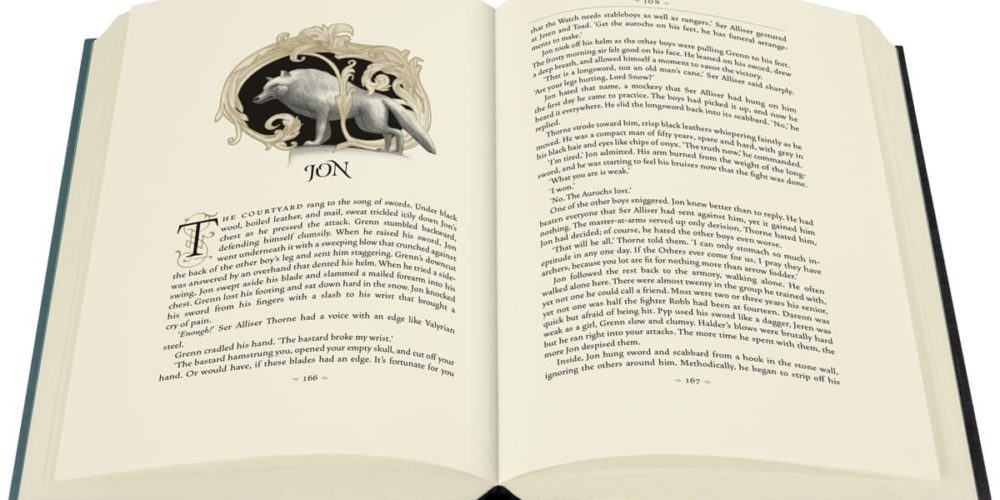Technology fail? A human can rescue that…

Photo credit: www.foliosociety.com
Do you know The Folio Society? If you’re a bibliophile, you probably do. They create beautiful special editions of classic books. Books done the old-fashioned way: in hardcover, usually cloth-bound; with premium paper and elegant typography; and given a new twist by specially commissioned illustrators.
A book-lover’s delight. But expensive. Surely that’s a tiny market in today’s age, those folks willing to pay even more for books to keep as collectibles or give out as gifts? Actually, the market exists. There are billions of humans out there, and the trick is to find the minimum viable market that makes even esoteric ventures worthwhile. The internet makes this possible.
That’s where modern tools and tricks come in. The Folio Society was founded in 1947 in London. To stay viable in 2019, it needs to address a bigger global market. And so I was delighted to see this old-fashioned book-loving enterprise on Instagram, highlighting its splendid editions of timeless literature. I was also very happy to see a summer sale being announced – lots of books at half the normal price.
I jumped in immediately. These books are not routinely affordable, so one must make the most of the opportunity to get them for less. I clicked through to an elegant website, nicely rendered on my phone browser, found three books of interest, added them to my cart, and tried to pay and check out.
That’s where the trouble began.
The website seemed to have trouble reconciling my preferred delivery address with my credit card’s billing address. I tried using PayPal instead – similar issues. The site would not flag the problem – the transaction would simply stall. After 30 minutes of trying various options, I gave up. Life is short. Oh, well.
But a rescue operation was in progress. A day later, I received an email, no doubt automated, that I had items in my cart and had not checked them out. Was I interested in trying again, it asked? Just click here…I was impressed, and decided to give it another shot. This time I clicked through on my laptop, hoping the site’s payments engine would be more robust on the bigger screen.
Sadly not. I hit the same transaction-completion problems as before after wasting even more time. Annoyed, I fired off a complaint and left it at that.
But that, too, was not the end. I received a very courteous and apologetic email (from a real person, this time), expressing regret and asking if I was available for a phone call in which everything would be resolved. Now, I hate doing things on the phone, and in any case I would hesitate to provide card details in that way. I said so.
The lady on the other side would not give up, though. She asked if she could call me at a time of my convenience, and promised me the transaction would be secure and would take very little time. I gave in and gave her my number and a time. She called on the button; she was friendly to a fault; and the deed was indeed done in just a few minutes.
I got the books; they got their money. (Sally Wilby of The Folio Society, take a bow).
As I say repeatedly: great customer experience (CX) in the digital era is indeed about new technologies, fresh channels, quick transactions and short interactions. But it is also about people. Folio had a great human in play, to rescue the situation from a CX fail to a CX win. They no doubt need to work on their online payment systems for the global customer (human rescue would be prohibitively expensive if it became too frequent). Nonetheless this organization knows something essential about customer care: the people interface matters just as much. The future is both analogue and digital.
Two things won the day for them. First, if the product is truly distinctive and can’t be obtained elsewhere, customers will probably hang in there and be forgiving. If not, they will leave in a click and get what they want elsewhere. Second, if key people are engaged with their work and proud of it, they will rescue many situations for you, with warmth and empathy.
If you have neither distinctive products nor distinctive people, then heaven help you. Now, if you’ll excuse me, I have some rather nice-looking books to read.
(Sunday Nation, 11 August 2019)
Sunny Bindra’s new book, The Bigger Deal, is now on sale.

Buy Sunny Bindra's new book
The X in CX
here »
Popular Posts
- Make this your year of being boringJanuary 4, 2026
- Can we please stop with the corporate jargon?January 11, 2026
- My books of the yearDecember 14, 2025
- Confessions of an explaining personDecember 7, 2025
- Here’s why you should become foolishNovember 30, 2025















